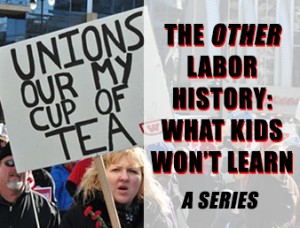DETROIT – A labor union’s true agenda is laid bare by its actions.
 Union contracts in non-Right-to-Work states require employees to pay full dues to the union or an “agency fee,” which is usually a high percentage of the normal dues amount.
Union contracts in non-Right-to-Work states require employees to pay full dues to the union or an “agency fee,” which is usually a high percentage of the normal dues amount.
Unions and public school districts work together to make it very easy for the unions to get the forced dues – they just take it directly out of the employee’s paycheck.
MORE NEWS: Know These Before Moving From Cyprus To The UK
But occasionally that doesn’t happen and teachers decide they don’t want to pay dues to a union they never wanted to join in the first place.
That’s when the so called “education unions” show where their loyalty really lies. Here’s a clue – it’s about money, not the best interests of students.
In 2009, 70 educators in the struggling Detroit school district were poised to be fired, not because of their job performance, but simply that they refused to pay their union dues, according to Examiner.com.
Under terms of the union contract, teachers who refused to pay union dues had to be fired, even if they are great teachers who do a wonderful job for the students of the district.
A newsletter from the Detroit Federation of Teachers summed up the situation this way:
“We are in the unfortunate position of having to notify seventy teachers that they may be terminated for nonpayment of union dues. Paying union dues, or alternatively agency shop fees, is a condition of your employment.
MORE NEWS: How to prepare for face-to-face classes
“When members do not fulfill their responsibility to pay their dues, we are in an unfortunate position. We have to notify the district that employment will be terminated in 35 days if the delinquent dues are not paid.”
We don’t know how this situation played out, and it doesn’t really matter. It raised some important questions that still need to be addressed in school districts across the nation.
Who did these teachers work for, the union or the school district? It should be completely up to school administrators whether to maintain or fire a teacher, and the reasons should have nothing to do with something as unimportant as union dues.
The relationship between employees and their unions should be no concern to the school district. The district should be allowed to keep quality employees, regardless of union considerations.
What if one of those teachers was recently the Teacher of the Year who was actually having a positive impact on student learning? Too bad. The union heavies weren’t getting their cut and that’s all they cared about.
The public education system should be focused on students, not on whether some labor union gets its money or not. No wonder our students are falling so far behind.
To read more installments of “The Other Labor History: What Kids Won’t Learn,” click here.


Join the Discussion
Comments are currently closed.